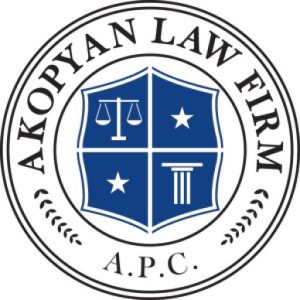Eastvale Employment Attorneys
The trial attorneys of the Akopyan Law Firm A.P.C. stand ready to fight for both employers and employees in Eastvale, California.
 Eastvale, California
Eastvale, California
Eastvale is a city located in Riverside County. Eastvale is home to more than 70,000 residents. It covers approximately thirteen square miles, and encompasses the following zip codes: 91752 and 92880. Eastvale’s history is intricately intertwined with that of its neighboring cities, including Corona, Norco, Chino, and Ontario. For well over a century and a half, the land in Eastvale was primarily utilized for farming and the dairy industry. In 1834, the Mexican government took control of the land from Native Americans and Spaniards, as well as Spain’s missions. To foster colonization, agriculture, and livestock raising in the region, the government granted land to influential and affluent Mexican politicians. After California’s statehood in 1850, the land in Riverside County was initially divided between San Bernardino and San Diego Counties, a situation that persisted until 1893 when Riverside County was formally established. The name “East Vale” likely emerged during this period, as it appeared in the minutes of one of the early meetings of the Riverside County Board of Commissioners, designating it as one of 53 school districts. During the 1950s, Los Angeles’ burgeoning population extended into the surrounding farmlands, leading dairy farmers to relocate their operations to the valley. Many of these dairies in Eastvale, the Chino Valley, and Ontario were owned and operated by Dutch and Portuguese families. As local schoolchildren progressed beyond the elementary level, they had to cross the river into Corona to attend higher grades. In the spring of 2007, responding to the wishes of Eastvale residents, a group of five individuals formed the Eastvale Incorporation Committee to explore the possibility of cityhood. After the initial election, two of the committee members, Jeff DeGrandpre and Kelly Howell, represented the community on the City Council. Together with three other council members, Adam Rush, Ric Welch, and Ike Bootsma, they guided Eastvale into the next chapter of its vibrant history. Today, Eastvale maintains ties to Corona and Norco as a member of the Corona-Norco Unified School District and shares a zip code with the City of Corona (92880) and the City of Jurupa Valley (91752). Before its incorporation, Eastvale was considered a community within an unincorporated area of Western Riverside County. Many residents mistakenly believed they were part of the City of Corona due to their shared zip code. However, Eastvale is now an independent city, charting its own path for the future. With a bustling city hall, dedicated staff, and engaged developers, the prospects for Eastvale’s future are bright and promising.
The Best Eastvale Employment Lawyers
Eastvale, due to its unique location, offers a multitude of options when it comes to legal representation. Numerous lawyers and law firms extend their services to the residents of Eastvale, creating a diverse landscape of legal choices. However, this abundance of options can pose a challenge for individuals seeking legal assistance, particularly when faced with employment-related legal issues that require the expertise of an employment lawyer. Employers and employees in Eastvale may encounter significant legal challenges in the realm of employment law, making it essential to choose the right attorney to address their specific needs. The task of finding the ideal lawyer can be further complicated by the persistent inundation of gimmicky radio advertisements and ostentatious billboards, bus ads, and street bench posters. In the digital age, many individuals turn to online searches to identify potential legal representatives. Yet, conducting an online search for phrases such as “Eastvale employment lawyer” or “wrongful termination attorney in Eastvale” often yields search results saturated with paid advertisements from lawyers who may not necessarily possess the experience or qualifications needed for complex employment cases. At the Akopyan Law Firm, A.P.C., our team of attorneys collectively boasts nearly two decades of experience. We take immense pride in our established track record of success, effectively representing the interests of both employers and employees. Our approach is centered on quality rather than quantity, as we prioritize delivering top-tier legal services to our clients. Unlike some law firms that invest in catchy radio advertisements, we prefer to allocate our time and resources to advocating for our clients’ rights within the courtroom. We believe that the quality of our legal representation speaks for itself. To affirm our commitment to excellence, we willingly provide client references upon request and encourage individuals to explore our online reviews. With offices conveniently located in Los Angeles, Bakersfield, Oxnard, Temecula, Rancho Cucamonga, Costa Mesa, Culver City, and San Diego, the Akopyan Law Firm A.P.C. is situated just minutes away from Eastvale. Our employment lawyers are fully prepared to offer world-class legal services and unwavering representation to Eastvale residents. In Eastvale and surrounding areas, when you require exceptional legal counsel for employment law matters, trust in the Akopyan Law Firm A.P.C. to safeguard your rights and interests with expertise and dedication.
We Can Help Eastvale Residents With:
Featured Article:
Interactive Process Violations in California: Recognizing Possible Employer Violations After Bodily Injuries
📌 Key Takeaways Know the signs of an illegal response when your employer learns about your disabilities due to bodily injuries. Silence Is a Signal: Your employer’s failure to engage in a timely conversation after you disclose a disability can be a direct violation of their legal duty. Good Faith Isn’t Optional: A brief, dismissive meeting or a quick “no” without exploring alternatives fails the legal requirement for a genuine, good-faith dialogue. Policies Don’t Invalidate People: A company's blanket statement like “we don’t offer light duty” is not a valid substitute for an individualized assessment of your specific needs. A Request for an Accommodation Is Protected Activity: Any punitive action, like sudden poor reviews or suspensions following your request for an accommodation for your disability, can be considered illegal retaliation. Recognizing these patterns is the first step in protecting your rights. These insights are for any California employee in a physical role—from construction and warehousing to retail and food service—who needs to understand if their employer is complying with the law after a workplace injury. When an employer in California knows about a physical or other disability, and does not engage in a timely, good-faith interactive process, that conduct may signal a potential violation of the Fair Employment and Housing Act (FEHA). The most telling markers often include silence after disclosure, perfunctory meetings, an early “no” without exploring options, or adverse treatment following an accommodation request. What the law generally requires—just enough to spot issues Under Cal. Gov’t Code § 12940(n), employers generally must engage in an honest, iterative dialogue with an employee who may need reasonable accommodations due to a disability. Interactive process refers to the legally required conversation about potential adjustments; reasonable accommodation means job or workplace changes that may enable performance despite limitations; good faith means a genuine—not superficial—effort to explore feasible options. Common injuries in physical roles—back, shoulder, knee, or leg conditions that limit lifting, reaching, standing, or walking—can qualify as disabilities when they substantially limit major life activities. If the employer knew of a disability and a potential need to provide an accommodation, the duty to engage in the good faith interactive process may be triggered. Red flags that may indicate non-compliance These patterns appear in construction, warehouse/logistics, manufacturing, retail, food service, landscaping, and delivery roles across Southern California. Examples are illustrative and not exhaustive. 1) Complete refusal to engage The disclosure of a disability, and a request for an accommodation is met with no outreach, meeting, or discussion. A written accommodation request receives no response. Blanket statements—“we don’t do light duty,” “this job requires full capacity”—replace individualized dialogue. Termination follows shortly after disclosure without discussion of potential modifications. Industry illustration: A construction employee who cannot lift heavy materials but could perform safety observation, traffic control, or tool management is released without any discussion of how his disability can be accommodated. A warehouse employee returning with a 20-pound lifting limit is told “all roles require 50 pounds,” and no scanning, packing, or dispatch roles... Read more









Millions of Dollars Recovered For Our Clients
Check Out Our Case Results



